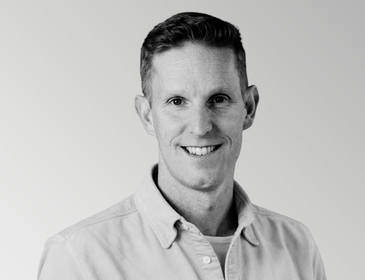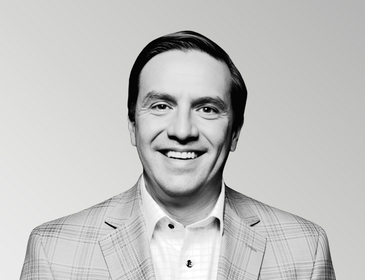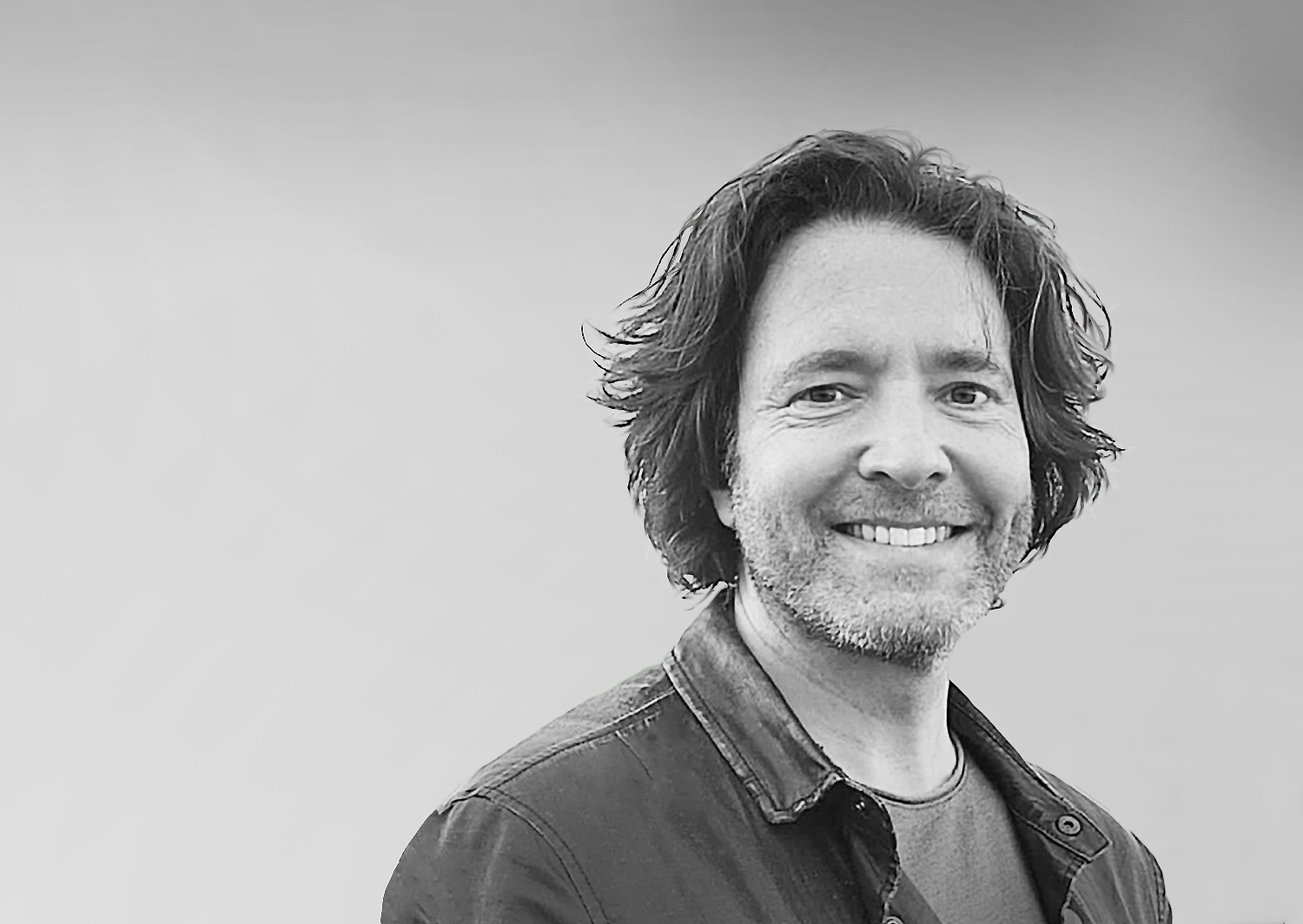Interviewed by Linnéa Jungnelius
Jason Ojalvo has a knack for spotting trends that others don't see, and a willingness to bet big on those beliefs, often swimming against the tide. That lens has shaped his 25 years as a leader, all focused on digital entertainment and disruptive innovation.
In 2018, he assumed his current role as CEO of TUSHY, the modern, direct-to-consumer bathroom brand that is making bidets mainstream in America. His clear vision for scaling the company is fueled by a passion for innovation, and has led to an impressive 20x growth trajectory.
Jason is not stranger to creating and revolutionizing new industries. He spent over a decade at Amazon's Audible, where he built and ran the ACX and Audible Studios arms. It is owing to his leadership that the division doubled the amount of audiobooks created each year and racked up dozens of awards, Grammy included.
From there, Jason became CEO for Jared Leto's Adventures in Wonderland event business, which he turned around and doubled in size.
On this episode of the Brilliant People Podcast, Linnea Jungnelius, VP of Marketing & Strategy at Acertitude, engages with Jason in a conversation on how he unearths those opportunities and builds coalitions to evolve ideas into commercial products, with innovations from audiobooks to the American bathroom.
Future thinking
Linnea: Jason, welcome. I'm excited to unpack your career journey together. It is peppered with examples of seeing around corners and betting on spaces that may not be obvious blockbusters. How do you identify what's next?
Jason: In my opinion, some things just click. A lightbulb goes off in my head and I think, "Why doesn't this product or service exist?" It just seems like an inevitability, and when I feel that way, I decide that it's something I want to pursue and focus on.
Some things you see out there are fun widgets or cool products, but I look for something that goes beyond that factor; something that will transform an industry or change the American public's way of life. When I recognize that and it seems like an obvious fit in five or 25 years, that's exactly where I want to be.
An early example of this mentality was during the dot come boom, when my friend started a company that was essentially Facebook before Facebook. I saw it develop, and I knew that this was what the internet should be for - people creating profiles, meeting each other, and connecting. It just made sense as to where it was going.
Similarly, I synced up with a music aggregator and distributor called The Orchard, which has since been acquired by Sony. This is the early aughts, when consumers were still buying CDs. From my perspective, it was inevitable that digital downloads and streaming were going to be the new "thing," and I understood this from my earlier days in the 90s music industry.
When I see a company that sees the future and just has to work backwards to get there, I know that's exactly what I want to do and be a part of.
Market disruption
Linnea: You also spent a decade at Audible, helping audiobooks take off in a mainstream way and become the booming $5.4B market that it is today. I checked, and it is on its 11th year of double-digit growth, which correlates with just a few years after you started there. Could you walk us through that exciting time, the opportunity you saw, and how you led change?
Jason: In 2006, I joined Audible while it was still independent, prior to the Amazon acquisition. There were a couple of different trends that led me to believe that the concept of audiobooks was going to work.
Prohibitive costs. At the time, audiobooks were extremely expensive, and you would have to buy them on a set of five or 15 CDs for anywhere from $50-99. Simultaneously, the iPod and digital MP3 players were gaining more traction, so the idea of having digital entertainment at your disposal at any given time was happening as well
Production trends. Due to the expense associated with overall audiobook production, only about 5% of books were being turned into audio.
When I joined, my role was to find a way to produce audiobooks at a much more inexpensive rate. Since they would be cheaper to make, we could afford to make more of them. If we were to charge consumers significantly less, we would have the opportunity to increase adoption and gain a lot of market share. So, as head of Audible Studios, I was tasked with scaling the business, reducing costs, and figuring out a way in which more than the minimal 5% of books could be turned into audio.
When we were acquired by Amazon in early 2008, their definition of scale was explosive. Instead of making hundreds of audiobooks, they wanted tens and hundreds of thousands, which led to the birth of what is now known as ACX.com, the Audiobook Creation Exchange. We learned how to unearth production rights from large publishers, independent author, and more and put the means of production into the hands of actors and small, grassroots studios. As the marketplace evolved, the business model changed to provide more work for authors, actors, studio owners and publishers. I'm proud of being able to support these creative people, allowing them to make more of their art, letting them do what they're talented at, and putting the product out on the market via Audible and Amazon. We disrupted the audio market in a profound way.
Linnea: This brings us to your current work at TUSHY, where you're now tackling the fun challenge of disrupting American bathroom culture. Obviously, first I must ask: why?
Jason: Why not? Haha. Every time I take a new job, my friends and former colleagues say, "Why would you do that? Why would you leave the music industry for audiobooks? No one listens to audiobooks. Or no one is going to use a bidet. No one is going to change the way they go to the bathroom. Why would anyone was with a bidet?" So, people always think I'm crazy, but most of the time, time tells that things are successful.
In terms of bidets, they're a complete game-changer. They are significantly better for your health and hygiene. Think about it: everything we wash is with water. Our bodies, the dishes, before we prepare food. Except, when we got into the bathroom, it's 1892 again.
Bidets are better for the environment. Each year, 15M trees are chopped down for the sole purpose of making toilet paper for Americans. So, at TUSHY, we are saving forests from being chopped down, and we think of our customers as activists.
The last reason why this company is amazing is because our products help people save money. It's a real win-win for our consumers. Normally, individuals or families spend hundreds upon hundreds of dollars per year on toilet paper - just to flush it down the toilet. If you buy a $99 TUSHY bidet attachment, that's the cost for life.
There has been proof of concept of bidets around most of the world, except in North America and a few other countries. TUSHY is the company that's changing that right now. I viewed coming to this company not as a leap of faith, but rather as a chance to innovate a concept that resonates with every individual in existence.
Linnea: When you're creating a new industry or launching a business in a new industry, what's important and different about leading a company and developing a go-to market strategy in that kind of environment?
Jason: In my eyes, it comes down to one thing: finding evangelists. It's key to find people that A) Want to buy your product B) Be happy with it and C) Really want to talk about how great it is.
When we launched ACX, we needed to prove legitimacy from day one. We sought major publishers, renowned actors and studios who did a lot of audiobook work, and convinced them to create profiles on marketplace. Publishers who flocked to the platform would see "XYZ" actor, actress or studio utilizing ACX, and they concluded that it was legitimate and trustworthy.
With TUSHY, we're talking about bidets. You would think people wouldn't want to talk about it, but the opposite happens when you've created this world and culture where it's exciting to talk about your TUSHY product. Evangelists are proud to use our products, and feel that they're changing the game, evolving, and righting the wrongs of prior generations. By creating fun marketing that is highly sharable, such as some of the outrageous social content and wild events that we have developed for TUSHY, people are naturally drawn to the product or concept. And consequently, they keep talking about it.
If you get those people [evangelists] early on, everything can cascade from there.
Authentic leadership
Linnea: Another area I'd love to get your thoughts on is how you think about authenticity when it comes to your leadership of the team and company. Why is it important to you and how do you stay true to yourself as a leader?
Jason: I pride myself on being transparent and low-key with a mellow-like personality, and tend to listen more than I talk. It's mostly because I enjoy gathering input from the people who I hired as experts in their respective domains - I want to hear from them first - and then weigh in with my opinions.
There are a lot of different methodologies and strategies that will lead us down the path of success, so I want to hear from the team:
- What are the multiple options we have?
- What are some different ways in which we can skin the cat?
- How can we grow?
- How can we solve this problem?
I like taking calculated risks and tell my team that I don't mind failing as long as it's for the right reasons. Before we take that risk, I like having my team advise me on different paths forward, even risky ones, but I want them to look around the corners and tell me everything that can potentially go wrong, not just how things can go right. This lets us enter new situations with eyes wide open, allowing us to recognize the potential pitfalls as opposed to having tunnel vision on the pot of gold at the end of the rainbow. If we don't succeed, but it's in a way that we collectively predicted, I'm okay with that.
Final thoughts
In a world characterized by constant change, market disruption is necessary to grow a thriving business. Beyond technological advancements and strategic plans, it is the collective energy, passion, creativity, and heart of individuals that fuel a company's ability to seize new opportunities. By putting the team first, cultivating brand evangelists and developing marketing programs that are engaging and sharable, organizations (and products) will emerge stronger and better connected to their consumers.
Defining brilliance with Jason Ojalvo
 | Purpose is: | something that comes to you easily and should almost feel obvious. |
 | Leadership is: | creating a culture of independent thinkers who feel like owners. |
 | Brilliant leaders are: | people who surround themselves with smart people who can connect disparate dots. They take calculated risks and focus on creating more leaders than followers. |
 | Success is: | getting to love, embrace, and champion people who love, embrace, and champion you back. |
 | I perform at my best when: | I'm having a lot of fun and forging my own path versus following someone's set rule book. |
Never miss insights
Stay in the know with our thought leadership
Linnéa's thinking
#BrilliantPeopleAtWork
Gareth Balch: How Fan Data, Audience Growth, and Sports IP Monetization Are Reshaping the Global Sports Industry
Dec 17, 2025

#BrilliantPeopleAtWork
Brian Neider: Managing Partner at Lead Edge Capital on the Strike Zone Strategy Behind $5B of Disciplined Growth
Dec 01, 2025

#BrilliantPeopleAtWork
Dan Migala: Former Legends Co-President & CRO on Turning Creativity into Commercial Wins in Sport
Nov 17, 2025

